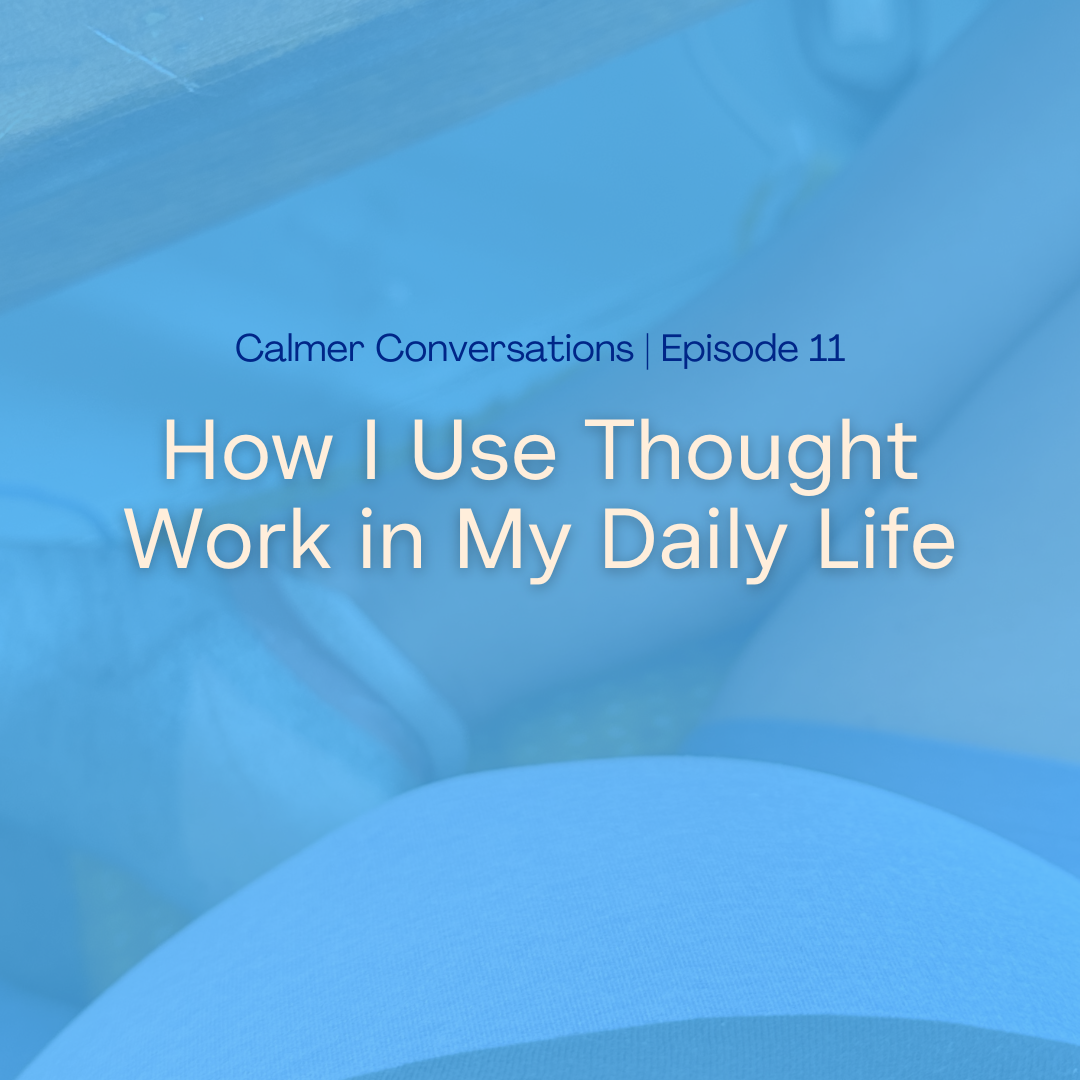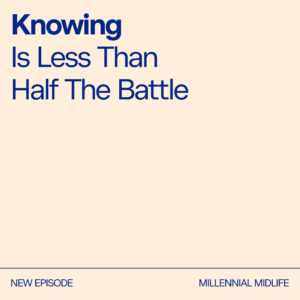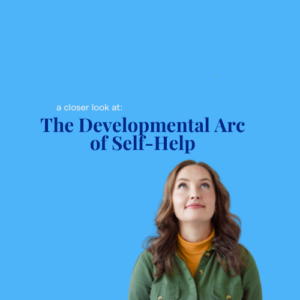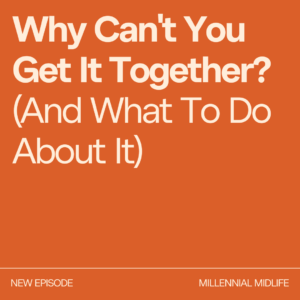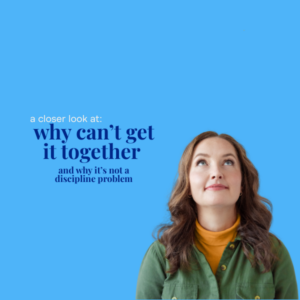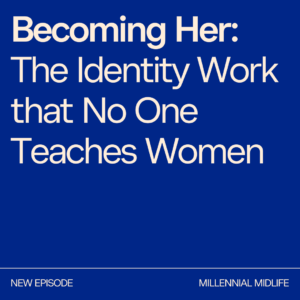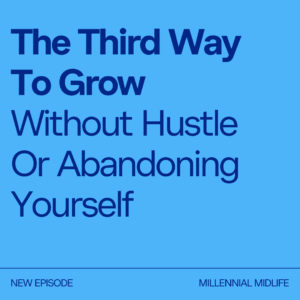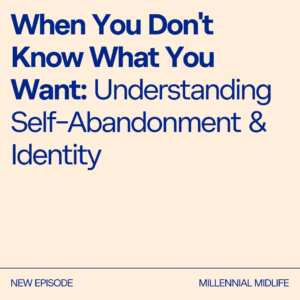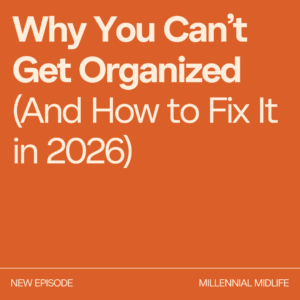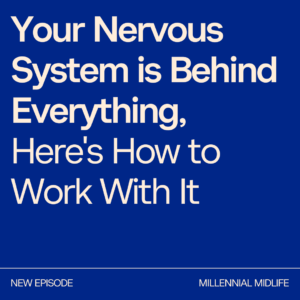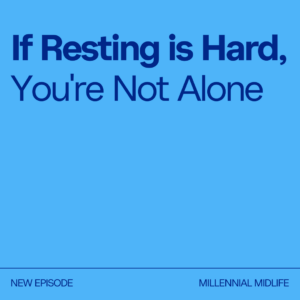Cecelia Baum Mandryk (00:02.606)
Hey and welcome to Calmer Conversations, episode number 11. I’m Cecilia, your host. Let’s get started. So today, you’ll notice I have a different microphone if you’re watching this, a different headphones on. We just moved and so while what I want to talk about today and what I think would be really interesting because I always love these kind of episodes is sort of more of a day in the life or how I use these skills for myself.
And I noticed when I was about to sit down to record this that I didn’t know where the cord for my microphone was. knew where the microphone was and I knew where the headphones were, but I didn’t know where that was and I wasn’t going to do it. And then I thought, it’s actually really valuable to see things in process. It’s really valuable to see these skills as we use them. And this is exactly where I am in my life, right? So today, you’re going to get a little, I’m not sure when this is going to air, so this might be well after the fact.
But so you have an idea, this is kind of me and how I use the skills and how I use them in my daily life when things are a little bit chaotic and when things are a little bit unsettled and how they allow me to feel calm and they allow me to feel grounded and they allow me to feel like me even when we’re in the midst of a of changes. So that’s what we’re gonna talk about today. If you…
are curious about my life or maybe you just like a little bit of voyeurism or maybe you want to understand how these skills can be used practically, this is for you. So make sure you stick around and let’s dive into it. Okay, so I’m going to give you a little bit of background information about where we are and what we’re doing. So before moving, we were living on a small island in Maine and for various reasons decided that we wanted to move.
We were in the midst of planning a big international move, but I’m pregnant and it’s very difficult, if not impossible to find insurance that will cover an in -progress pregnancy, which you need for a transition to a new place. But we, so we kind of went through this phase. My husband and I had so many long conversations around what we were going to do. And that’s kind of the first place I want to dive into these tools. So we had this kind of one plan that we thought was going to happen.
Cecelia Baum Mandryk (02:20.096)
it became clear that that wasn’t possible, even though we were in process with it and we were kind of getting towards the end of it. And this last thing that’s usually like a, just a very small little hurdle that most people have to go through of getting this transition insurance became a brick wall for us. And I think when I think back to my previous self and who I was before I implemented these skills a lot, a couple of things would have happened.
One, I would have been really upset. Like, I would have been angry irate at the entire process, at the fact that things weren’t working out how I thought they should be working out. I would have been extremely angry at myself for not knowing ahead of time or not doing things perfectly. So getting this far down the path of where we were and not really knowing
that this was going to be a hurdle. And so I would have been in kind of emotional turmoil and how I would have really known that, but how I would have handled it is I probably would have acted out against my partner. I probably wouldn’t have been a very present mother to my children. I probably would have punished myself a lot through maybe like eating restriction or through exercise. I also probably would have procrastinated a lot. So I would have let a lot of things that
I do normally fall off. So perhaps my yoga practice would have disappeared or my daily walks or things like that. And it generally would have been a very distressing time. Now, I’m not going to lie to you and tell you that I wasn’t disappointed that this wasn’t going to happen, right? This is something we’ve been talking about and kind of been planning and we were excited for it. But when we got the news, instead of feeling devastated and like everything was going to end, I found my brain very quickly going to this place.
of believing and really understanding that things work out how they’re supposed to work out. When I can look back on my life up to this point, there have been places like this where things didn’t work out how I wanted them to work out in both very small and one could say trivial ways, but also in very large ways. When I can see them from where I am now, I think the best thing did actually work out. It’s hard to see it in the moment.
Cecelia Baum Mandryk (04:46.262)
And it’s hard to know that in the moment and even trust and have faith in it in the moment. But when we look back, oftentimes, this comes up and this happens not just for me, right? Like a lot of people will say like, that terrible thing that happened to me was actually one of the best things that happened to me. I got hit. was a pedestrian crossing the street and was hit by a car and was sustained a fair number of injuries. And in the process of it, I never would have said like, I’m happy for this. But looking back, it was a big turning point in my life.
And so I can look back and say that actually was perhaps an overall good thing in my life, even if during it wasn’t exactly what I would have chosen or how I would have chosen to spend that period of my time. So that was the first thing I noticed that my brain didn’t immediately go to catastrophe, punishment, shame. I should have known better. I should have done better. I could have prevented this place. And that felt really good. Right. And that.
The other thing that it did was, you know, I wasn’t hanging out in shame, which most people would prefer not to hang out in shame, and I will include myself in that. But it also allowed me to recognize and be present for the emotions that were present and what actually was going on. And to start to ask myself really interesting questions about what was the essence of why we were moving and what was the essence about the place we were planning to go. And could there be another answer for that?
Could there be someplace else that we might consider? And if I had been stuck in this shame spiral and beating myself up and restricting and doing all those things and taking it out on other people, I really wouldn’t, I don’t think I would have been able to be available for this and it wouldn’t have been able to happen as quickly as it did. So I was able to recognize disappointment, for instance, like, I really was looking forward to this. I was actually able to recognize a little bit of relief because I’m pregnant and I run a business.
And it involved kids starting school in another country. And there was in some way, it felt almost relieving that this wasn’t going to happen. And that was a really interesting thing that entered into my brain. I was able to notice the desire that I had to be building a different life than the one we were currently building where we were.
Cecelia Baum Mandryk (07:11.03)
And all of these are deeper, more nuanced things that happen in our brain. And they are only available to us when we’re able to kind of cut through the surface story. Right? So cut through my story of like, I should have known better. The ego is getting involved as big drama. And once I was able to step away from that, then I was able to get to these other things, these underlying qualities and questions that were there.
So that was really powerful. And I think that that’s something that comes, I’m also hosting a free workshop this week that was kind of a little bit last minute. And one of the things that’s come up over and over again is the practice component of this work and how doing this work over and over for well over a decade now, so many of these things become, they are my default, right? I’ve spent sometimes more time going, this approach or using this approach.
least in this part of adulthood than the other approach that I used to use. And that’s really neat to see the fruits of my labor, I guess, like to have stuck through it long enough to stick through the kind of river of misery for long enough that now my brain defaults to this other place. It was really neat to be able to hold myself through some really big emotions during this period.
And I’m talking emotions, I’m making the decisions that we made, emotions on leaving a place where we’ve spent the last, you know, almost four, three and a half years, how integral and how many of our family memories are there. So working through that, the stories of loss, the stories, like all of that kind of thing, to be able to just be with myself in a very kind way.
in a very gentle way was surprising to me, which it shouldn’t be so surprising given that I do this work. But it was surprising how naturally it came to me and also how good it could feel. And how every time big emotions came up, instead of running away from them, which is what I used to do, or hide them or push them down, which is 100 % what I used to do. If you’ve been in my world for some period of time, you know that I used to kind of like
Cecelia Baum Mandryk (09:28.088)
stuff emotions down and then I’d take long flights, which were part of my job at the time, and I would just kind of cry for a couple hours on the plane. And then that would reset my system for some period of time. could stuff things down for a while and the next long flight I would cry more. This I was able in real time to notice, I’m feeling lost. And this particular version of loss is related to, for instance, I a miscarriage while we were living in Maine.
went through the birthing process at home and the baby is buried there, right? And so having that, like that is version of loss that I need to address and be with. And noticing that I could feel that loss and I could hear that story and I could be with myself with kindness through that and hold myself in the way that a parent might be able to hold and make space for a child and help myself move on. And so my capacity to be able to hold these big emotions, to recognize them, to process them,
I think has been really powerful and again allowed me to stay present day to day through the move for myself and for my kids. And that’s felt really good because there’s been no dwelling, there’s been no spiraling, there’s been no getting stuck at different kind of points of it, which has allowed me to move pretty fluidly through the past two months where the majority of this has happened. Really actually six weeks. It’s been a little bit of a roller coaster.
So those are kind of like the background emotional things. And that is really truly nervous system work. That’s really truly understanding what’s happening between my brain body connection, which I didn’t have a great brain body connection before. was one of those people who kind of lived from the neck up. I didn’t really understand what’s happening in my body. I couldn’t identify emotions. I couldn’t name emotions. And so now to be in a place where I can do that very easily and to, again, like I said, to parent myself, to hold myself through this transition.
and was extremely powerful to witness. And there’s this kind of meta thing that happens as you see, somebody said this in a group this week. I’m like, we’re the one like witnessing the thing. We’re not the one experiencing the thing. And, I now finally get that in a real way. And I felt like I had a lot of that too, in that I was witnessing how I was interacting with myself through this process and being and feeling really proud of me and feeling really proud of,
Cecelia Baum Mandryk (11:49.618)
again, sticking with this work for long enough that it’s become my kind of default way of being. Okay. Then let’s get to some of the practicalities. And I mentioned this on. So, okay, so we were in Maine, we were going to make this big international move. We couldn’t make this international move. At least it didn’t seem prudent to make this international move. Of course we could have forced it. And maybe that’s even another point. Past me would have been so committed to the prior decision that I would have forced it.
I would have bulldozed my way as much as possible and used as much force and willpower to make the thing happen, probably against my own best judgment and my best, my knowledge and my wisdom, because I would have wanted the outcome so badly. And that’s kind of what I would have made happen. So come hell or high water, I would have really, really committed.
doing the thing. And this time I felt so much less attachment to where we actually moved, if we moved, what it looked like, when it happened, etc. And I was really more open to, again, those questions that I was mentioning before, like, okay, if we do have this desire, if this is really at the heart of why we want to move, how can I bring that forward into a new place? Or are there other places we can look for now? So
I didn’t force anything. And the practical side of it was we needed to pack up a house. We needed to list a house for sale. We needed to sell a lot of belongings that were kind of delivered to us when we first moved there. We needed to figure out school for kids in this new location. We needed to figure out how we’re getting to new location and then settle in once we were there.
And now we’re kind of at the end of our first week of school, just to give you an idea of where we are in space and time. So we’ve made the move. And we did it. This means that we had a lot of yard sales. We did a lot of contact. was kind of, once I took the shame and the spiraling out, it was a much more clear what needed to happen. And even asking on a daily basis, okay, if this is where we’re going, this is what we’re doing. What needs to happen to make that reality?
Cecelia Baum Mandryk (14:11.534)
come forward became a much easier question to ask. And because my ego and my identity weren’t wrapped up in the outcome, it also became much easier to do. So did that went through like, I don’t know, years of my life in terms of like processing things, which was also a very kind of bizarre situation to do to see to processing go through me from like infant through middle school art projects.
through high school and college, like high school graduation stuff and college graduation stuff and my life, my life in, in Texas and Denmark and all these different things and having to process them along the way. Again, was a lot. I’m not going to say it was easy, but it was easier and it was without suffering because of these tools. And then I, so again, that falls into the nervous system.
recognition and the main tools that I used in that place just so you’re aware and these are tools that I teach in in the club and I teach in groups and I teach in courses that I do I used EFT or tapping so I would tap through things I used coherent breathing I used meditative walking so kind of like walking silently and just being with whatever came up I used journaling and for maybe lack of a better term prayer and
So those were all part of that work that I did, right? And a lot of naming, of noticing, naming, and accepting. A lot of noticing, naming, and accepting, which are three of the principle tools that I’ve talked about here, and are so crucial to what I do on a day -to -day basis. And they’re really what I mean when I say this has become how I am in terms of a person.
and less of kind of this outside thing that I’m reaching for. So if you use things regularly enough, they actually do become your way of being. So those are the ones that I use the most. And then I also became really aware of my thoughts, right? And this is what I mean when I talked about questions and asking questions of like, what was at the heart of this move? And if these are our true desires,
Cecelia Baum Mandryk (16:34.25)
then how can we give them to ourselves or how can we meet them given that we can’t make this move that we thought we were going to be able to make. Right. So how can we give ourselves what we wanted knowing that the original outcome or the original way we thought we were going to deliver to them and to ourselves is impossible. And through that also becoming aware of all the thoughts and hangups I had about where we ended up moving to, which is back to central Virginia.
about kids starting school, about my identity as like a mother and a parent and I’m a human being and kind of how I see myself. And getting really clear on the stories that were from my past or stories that came from other people versus the stories I want to tell about me and where I’m going in the future.
And this came up in one of the workshops this week too, with someone talking about the thoughts that they have and how they’ve absorbed them from a parent. And they can even hear the parents say them in real time. And then they notice them in their head. And the same thing happens for all of us. are exposed to, people have thoughts about our lives. They have thoughts about who we are. We have thoughts about who we are, who we think we should be. We absorb them, we regurgitate them to ourselves. And they can keep us stuck in really interesting patterns.
And so just being aware of them and being aware of how much influence my thoughts have through the process of something like a move is, was crucial in getting through it. And I mean, this is largely just like me. I wrote down a few notes, but this is largely just me talking through this. And there’s so many topics we haven’t even gotten to about like parent identity and shepherding children through.
through major changes. So maybe I’ll save that for another episode because we’re kind of getting towards a mark of ending this one. But really, just wanted to show you that life is messy for all of us, right? Like things happen and life will ask a lot of you. If and if you’re willing to answer it and if you’re willing to answer it with intention and with presence and with some tools, you can actually get through some pretty big, maybe hard stuff.
Cecelia Baum Mandryk (18:51.028)
with ease and with calmness and with no nervous breakdowns, no screaming matches, no, none of that. in a way that feels really good. Cause I can say now we’re almost on the other side of it, right? We’re at, we’re at our last day. I’m recording this on a Friday. We’re at our last day of the first week of school. My kids have never been away to school before. I was able to stay present for them with them through this entire thing.
be present with my husband, have some really intense and interesting conversations around moving and desires and goals in life. And so just knowing that you can do this kind of thing and it can feel grounded, it can feel calm, is entirely possible for you. But you have to do work. So you have to do some of these things, right? This is only happening because I’ve been doing this work for a while.
practicing these things for a while. This morning on my walk, I was thinking of a client who in the workshop this week has mentioned several different major kind of breakthroughs or progress. And I remember that the first time I really interacted with her was two years ago. And for two years, she’s been regularly engaging with me, first through one on one coaching, and now through group coaching and in the subscription among the club. And she’s been coming back again and again.
again, and really courageously facing this work and being with this work. And she is now seeing the fruits of her labor, right? She’s seeing major shifts and changes in how she experiences things like bodily pain and how she works with anxiety and the story she tells herself and past stories from her life. And so this is not just me. Like, I’m not a special snowflake. It’s not just me who can do this. You can do this too. And no matter how old you are,
No matter where you are in your life, if you want to feel different, this is available to you. And I know that hard things come up and I know that hard things happen. And this work is not just about feeling good on good days. It’s about feeling calm and grounded and peace and even joy through periods of time that can feel more challenging, whether that’s something like a move or it’s something like the death of a loved one or a sickness or whatever it is that’s happening to you.
Cecelia Baum Mandryk (21:13.762)
that’s happening in your life, whatever circumstances are outside of you, they are not responsible for your peace. They are not responsible for your peace of mind, for your capacity to feel calm. You are responsible for that. And when you have the tools and you engage with these, it is something you can create for you. And as I’ve said many times before, and I’ll say again, it’s not something that comes usually with the flip of the switch. It’s something that comes from from really committing to doing this and committing to doing it.
over time and repeatedly and saying, yes, I want to. Again, I’m not sure when this is going to air, but there is this course that may be ongoing right now. And if you write me an email, you can still jump into it you can just join the club. But the course is 90 days. It’s the WINS course, but it’s 90 days to creating happiness and progress in your life. And it’s working with your brain and rewiring it to get there really because this is a practice. And 90 days is just the beginning.
90 days really gives you an amazing chance to feel out how this could work and work in your life. Okay. I’ll probably come back with a second version of this around the whole parenting aspect. But thank you for sticking with me through any kind of oddities and sounds today. And I really thought it was important to kind of catch this in real time instead of doing it later. And by the way, also, we moved and then we got COVID.
and then we started school. So just so you know there’s been some other things in there that I just didn’t even mention. So it’s been it’s been six weeks and we’re here and we’re smiling and we feel really good about it and thank you so much for being here for listening for doing this work really truly the world benefits when you do and you benefit when you do and I will see you next week.

